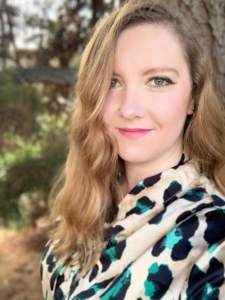Apocalypse, now?: The Metaverse
I. We crave contact. Politics and a pandemic have driven us apart, so we’ve found each other in a new place, a world within a world—The Metaverse. (1)
II. The digital universe is a limitless space, promising contact, a way for us to find each other across multiple digital realms. Some worlds replicate our own. Others are “cartoonish, [and] gummy-colored fantasy.” Soon, we will date, work, and socialize in the Metaverse. Already, we can buy plots of land, avatars, currency, and manufacture a life. The Metaverse offers limitless friends, opportunities, experiences, the chance to be part of the next big thing.
III. Anything imagined can be commodified. It’s not long until the digital universe will become a “fully functioning economy” worth 1 trillion. Already Snoop, Louis Vuitton, Gucci, Burberry, Apple, and Facebook—renamed “Meta”—have found their way to the Metaverse. But is this what we intended…not to create but replicate? What if this isn’t what we want?
IV. We follow social trends though it’s cost us, because we know those remaining in the analogue world will be labeled outcasts, out-of-touch, outdated, the ones outside the community. To remain in, now, what will this cost us?
V. The price of anything is bodies. Digital harassment and sexual assault are rampant in the ill monitored digital spaces. NFTs, in the form of Avatars, have groped, demeaned, and ejaculated on other players. Haptic vests transmit simulated sensations and vibrations through virtual touch—whether that contact is wanted or not.
VI. Online we are strangers. How can we hold each other accountable if we are anonymous? CEOs say they have policies to protect those using the Metaverse. CEOs claim they are committed to keeping people safe. A familiar refrain.
VII. Art is a synonym for war.
VIII. Billionaires are buying our water aquifers to profit off our desperation later. Global warming will make parts of the planet uninhabitable and force people from their homes in search of more temperate climates. Many won’t survive. The uber-rich plan to colonize Mars. Soon, due to advanced medical technology, we could live to be 150—or even live forever—if we can afford it. We live in a racist and patriarchal meritocracy [aristocracy] that villainizes the weak, the poor, the unproductive, and thrives on using the middle class to feed the uber-rich. We are overpopulated. Overworked. [Are we happy?] We cannot afford to be happy. Does this mean we cannot risk it or we literally cannot afford it? An answer: What is our value in this society if we cannot consume products (“The American Dream”)? What if we cannot produce (“Pick Yourself Up By Your Bootstraps”)?
IX. Back to art as a synonym for war: We wanted to fight the system, the system that makes us all feel like strangers, the system that casts us all as villains in each other’s stories. We created a digital world, in part, to escape from our broken one, to make a new place, a place to find each other. But will virtual spaces like these bring us closer? Will they make us happy? What if, in our “pursuit of happiness,” we lost Happiness’s tracks?
X. What if this is an apocalypse, now? Would we recognize it if it’s digital, not biblical?
(1) Metaverse, an explanation – First you must decide which virtual platform, or digital realm, you’d like to invest in and then research which cryptocurrency that platform uses. You open a digital wallet to hold said cryptocurrency. You then buy NFTs—non fungible tokens that are trackable and non interchangeable–with that cryptocurrency. This cuts out the middleman, like a bank or credit card company, so that all parties can engage in safe transactions person-to-person online. Transactions are documented in blockchains, transactional chains, that can be viewed as far back as the first transaction of that cryptocurrency. Miners verify transactions.
A.D. Russ received her BFA in Creative Writing from UC Riverside and she is an MFA candidate at Antioch University. Her work has appeared in UC Riverside’s Mosaic Art and Literary Journal and in Endurance News. She resides in California where she teaches, is managing editor for Lunch Ticket, and is working on her memoir. Twitter: @TheWritingRuss / Web: https://ashleydruss.com/





